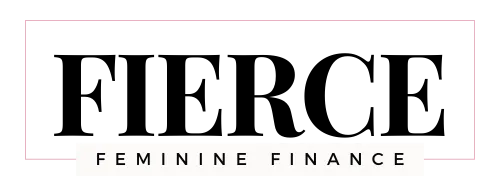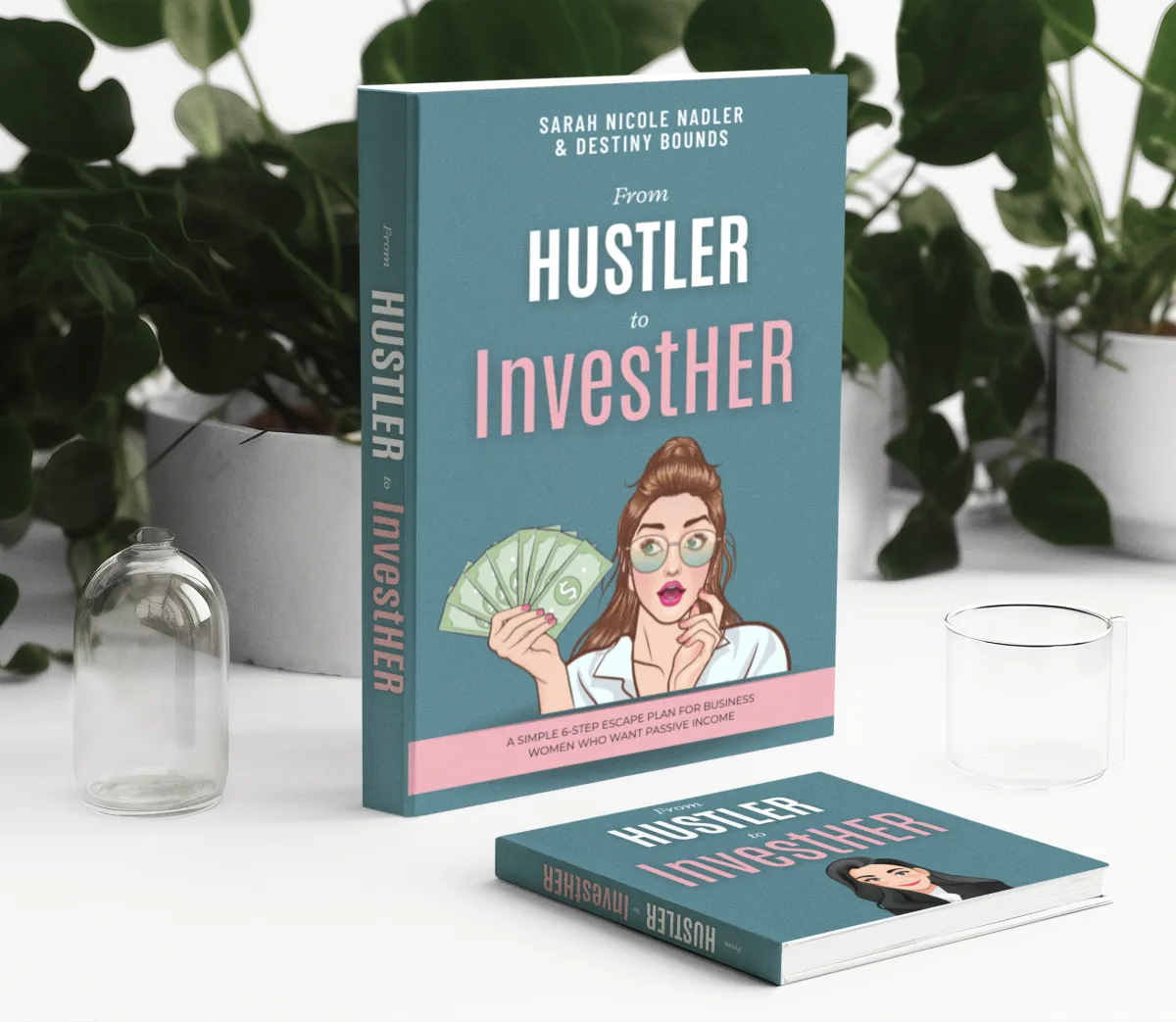
Estate Planning Secrets Every High-Earning Female Entrepreneur Should Know
"Your estate plan should give you complete peace of mind, knowing that your business, family, and wealth are fully protected."
Most high-earning female entrepreneurs know they should have an estate plan. But between running a business, managing a team, and handling everything else life throws at them, it’s easy to push it off—until it’s too late.
I’ve had too many spouses, children, and even employees come to me in a state of panic after the unexpected passing of a successful woman entrepreneur—only to find out that nothing was properly set up.
No will. No key person insurance. No business succession plan.
Their business? Shut down.
Their employees? Left scrambling.
Their family? Financially devastated.
This is why estate planning isn’t optional for successful & established business women—it’s urgent.
Your estate plan should give you complete peace of mind, knowing that your business, family, and wealth are fully protected—no matter what happens. It should ensure that your loved ones aren’t left with stress, confusion, or legal battles, and that the business you worked so hard to build continues to thrive.

It should feel like a luxury-level safety net, allowing you to focus on living your life, growing your wealth, and enjoying your success—without the nagging worry of “what if.
The truth is, a lot of the estate planning "advice" I see online is meant for employees—not entrepreneurs. If your wealth is tied up in your business, assets, and the brand you built, you need a completely different strategy to ensure your family, clients, and employees aren’t left scrambling when you’re gone.
Without the right plan, your business could get stuck in legal limbo, overtaxed, or even dismantled if something unexpected happens.
Your family could end up in messy lawsuits or lose control of what you built—all because no one told you the unique estate planning moves that entrepreneurs must make.
So, what’s a Savvy Business Woman to do?
Let’s talk about the differences in estate planning strategies for high-net-worth female entrepreneurs—so you can keep your business thriving, your family protected, and your legacy intact.
Why Listen to Me?
As a financial advisor & money coach for female entrepreneurs, I see the behind-the-scenes of business owner's financials every. single. day.
But I don't just teach this—I've lived it.
Growing up, my dad owned a restoration business, and as a young adult, I handled its bookkeeping and HR. I saw firsthand what happens when families fail to plan for disasters.
I’ve watched people lose everything because they thought skipping homeowners insurance or waiting to “pay off debt first” before starting an Emergency Fund was a good idea.
Spoiler alert: it wasn’t.
Later in my career as a financial advisor, I saw families battling over a business after the founder passed away without a solid plan.
I’ll never forget the high net-worth family who spent decades having Sunday dinners together every week... to not speaking for years because their father didn’t leave a will.
What started as a few tense conversations turned into legal battles, resentment, and years of silence. By the time the lawsuit was settled, the damage was done. When the brother passed away years later, they had never repaired their relationship.
One missing estate plan. One bad decision. A lifetime of love and trust—gone.
I share these stories because you, as a high-earning businesswoman, have the power to do things differently. You can protect your business, your family, and your legacy—without the legal battles, stress, or financial ruin.
This article is about real, tested strategies that I personally use and recommend to my clients. Including my Fear to Fierce Financial Formula:
Profit – Making sure you pay yourself first and prioritize revenue streams.
Prepare – Ensuring you are ready for disaster preparedness and unexpected expenses.
Eliminate – Paying off debt and building strong credit to create financial freedom.
Protect – Safeguarding your assets and ensuring your financial security.
Grow – Building long-term wealth and creating passive income streams.
Today, to help you avoid causing destitution, heartbreak and financial loss when you're gone, I’m breaking down three powerful components of Step 4 "PROTECT" in the Fear To Fierce Financial Formula.
With every episode of Fierce Feminine Finance, I like to empower you with a POWERFUL free resource that goes with the episode which you can implement right away to create some of the same results, if not better, in your business.

This week, since we are talking about ways to protect your legacy, I want to invite you to my Ultimate Guide To Financially Bulletproof Your Family for Female Entrepreneurs to help you implement the strategies I talk about here...and a few extra I didn't mention!
After going through this free guide you will be able to identify the missing pieces in your family's financial strategy. So you can start taking steps right away to secure your future!
You can download it right away by clicking here or on the photo above 👆
This is NOT financial advice. It's my strategy based on my own financial situation and experience, and is not the advice I would give to every client. If you'd like the support of a financial advisor to work out your own plan, click here to connect with my team.
1. When You Don't Know What Questions To Ask, You Can't Trust The Advice... or the Results
Where most successful business women go wrong when seeking an advisor, CPA or attorney is by seeking a "trustworthy" expert.
You ask friends or family for a referral, check online reviews, and generally rely on word-of-mouth.
But word-of-mouth isn't a strategy.
In my book, From Hustler to InvestHER, I wrote:
"… put the proper protections in place so your partners don't become your future liabilities.
Notice I didn't say: find partners you can trust.
A lot of investors have failed and lost their shirts because they tried to work with 'trustworthy' partners."
This isn’t just true in investing—it’s true in estate planning, too.
I’ve seen too many high-earning women assume that finding a "good" attorney, CPA, or financial advisor is enough. They go with the person who comes highly recommended, the one who “seems nice,” or the one their family has used for years.
But let me ask you this: How will you know if their advice actually protects your business, wealth, and family—if you don’t even know the right questions to ask?
So rather than hesitating to get started because you don't know who to trust, or being too trusting and hiring based on a handshake and a smile, let's look at ways to protect yourself by a) qualifying the people you partner with, and b) putting proper protection in place in case you're wrong.

Step 1: Pick The Right Type of Expert
The biggest mistake isn’t hiring the wrong expert. It’s not knowing enough to evaluate the advice you get from the expert you hire.
Estate planning for entrepreneurs is wildly different from estate planning for someone with a W-2 job. If your CPA or attorney primarily works with salaried professionals, they won’t be thinking about the complexities of your business succession, the tax implications of transferring ownership, or how to protect your business assets from legal disputes.
That’s why you don’t start by looking for a “trustworthy” expert. You start by educating yourself enough to know when you’re getting good advice.
Step 2: Ask The Right Types of Questions
Estate Planning Attorney:
❓ If something happens to me, what legally happens to my business?
❓ How can I ensure my business continues running without disruption?
❓ I want my shares of my business transferred to my spouse if something happens to me. What’s the best legal structure for that?
❓ How do I protect my business if my heirs don’t want to run it—or if they disagree on what to do with it?
❓ I have business partners. Do we have a buy-sell agreement in place to ensure my heirs are compensated fairly?
❓ What legal documents need to be in place to ensure my family doesn’t have to fight over ownership?
❓ How do I prevent my personal assets from being used to pay business debts after my passing?
❓ What estate planning strategies protect my business from lawsuits or creditors after I’m gone?
❓ If I become incapacitated but not dead, who has the legal authority to make financial and business decisions on my behalf?
CPA:
❓ Are there tax benefits to transferring my business to family members versus selling it?
❓ I have business partners, so what are the tax implications of a buy-sell agreement?
❓ Should I transfer business ownership gradually to reduce tax exposure?
❓ What is my estimated estate tax liability, and how can I reduce it?
❓ How do capital gains taxes affect the transfer of my business, real estate, or investments?
❓ Is my current business structure (LLC, S-Corp, C-Corp) the most tax-efficient for my estate plan?
❓ Would restructuring my business reduce my tax burden or provide better protections?
❓ How do I ensure my personal and business assets are separated for tax and liability purposes?
❓ What are the tax consequences if my business is sold after my passing?
❓ Are there deductions or tax credits I should be leveraging to reduce my estate’s tax liability?
❓ Should I have multiple LLCs or trusts to protect different assets from taxation and liability?
Financial Advisor:
❓ Do I need key person insurance for my business? How much coverage should I have?
❓ What types of insurance do I need to protect my business, personal wealth, and family?
❓ Do I have enough life insurance to cover my business debts, taxes, and family’s financial needs?
❓ Should I use whole life, term life, or indexed universal life insurance for estate planning purposes?
❓ How do I make sure my family doesn’t have to use personal assets to cover business expenses if I pass away?
❓ How do I fund my buy/sell agreement to ensure my business transfers smoothly in case of my death or disability?
❓ If I have business partners, how do we ensure a smooth ownership transition without financial hardship?
❓ Should I have a disability buyout policy in case I become incapacitated but not deceased?
❓ What protections can I put in place to ensure my family isn’t forced to sell the business at a loss?
❓ If I become incapacitated, how do I make sure my assets and business are managed properly?
❓ What’s the best way to structure my financial power of attorney to ensure business continuity?
❓ How can I protect my retirement savings from being drained by long-term care expenses?
❓ How do I ensure my spouse and children aren’t financially burdened if I need extended medical care?
❓ How do I make sure my children don’t squander their inheritance?
❓ Should I set up a trust to control how my heirs access their inheritance?
❓ Should I include financial literacy training or mentorship as part of their inheritance plan?
❓ What’s the best way to structure my investment portfolio for long-term wealth preservation?
❓ Should I shift more assets into tax-advantaged accounts to protect my wealth from estate taxes?
❓ How do I protect my investments from excessive taxation when passing them to my heirs?
❓ What’s the most efficient way to transfer real estate, stocks, and business assets to the next generation?
❓ How often should I review and update my estate plan to reflect changes in my business and wealth?
If you don’t ask the right questions, you won’t get the right answers. And if you don’t get the right answers, your estate plan won’t actually protect you the way you think it will.
2. Your Estate Plan Needs To Include These 3 Scenarios
Step 4 of my Fear To Fierce Financial Formula is all about protecting your assets, and estate planning is a core part of that. Traditional wisdom has had women not worrying about an estate plan until they are nearing retirement age, but as business owners that is an incredibly irresponsible approach.
One of the first clients I ever had in my profit coaching business was a veterinarian who practiced Traditional Eastern Medicine on pets. She was the sole doctor in her private practice, and her income covered 75% of her family's household expenses.
When she passed unexpectedly, I had a front-row seat to the aftermath.
No life insurance. No business reserves. No will.
Her practice was shut down, all her employees lost their jobs. Her family had the financial devastation to deal with on top of everything else.
And yet, she was "too young" to have an estate plan!

This is why I recommend to my high net-worth clients that they create an estate and business succession plan that covers three scenarios:
a) What will happen if something unexpected occurs to you tomorrow
b) If you pass away unexpectedly in the next 5-10 years
c) If you live past age 65 and/or have already transitioned out of your business
Each situation requires a different strategy to ensure your business and wealth are protected, no matter what.
Click Here To Connect with My Team About Creating Your Estate Plan.
3. Avoiding The Most Common Mistakes
A list of all the mistakes I see successful female entrepreneurs make when estate planning would take ages to make. Most of them boil down to:
If you’re a high net worth business owner and serious about transferring wealth to the next generation, this is NOT a DIY activity!

Think of estate planning like designing a luxury dream home.
Sure, you could watch a few YouTube videos and try to build it yourself—but would you really trust a Pinterest tutorial to handle the foundation, electrical wiring, and structural integrity of a multi-million-dollar estate?
Of course not.
You’d hire an architect, contractor, and a team of specialists to make sure your home is built to last—ensuring it’s structurally sound, protected from disasters, and designed exactly the way you want.
Your estate plan is no different.
One wrong move—one missing document, one tax oversight, one vague clause—and everything you’ve built could end up in legal battles, excessive taxation, or completely dismantled.
Just like a well-built home, a solid estate plan ensures that your legacy stands strong for generations.
So there you have it! Three strategies for protecting your family (now or in the future) that are strategically perfect for high net-worth female entrepreneurs. You worked too hard to let time and omitted paperwork erase your legacy from this earth when you pass.
And your family, employees and clients deserve better than to be left picking up the pieces.
✨ Your challenge this week: Pick ONE of these strategies and take action. Start making a list of questions to ask estate planning experts, gather up any paperwork you already have and review it, and book an appointment with my team.
If this article helped you, DM me on Instagram (@FierceFeminineFinance) and let me know your biggest takeaway!
A Beginner-Friendly Class On Investing & Building Passive Income for Business Women and Entrepreneurs
Get my exclusive strategy for turning your intellectual property into passive income and growing it to 5-figures per month and beyond! FREE


© Copyright 2025 Sarah Nicole Nadler LLC. All rights reserved.
2022 All Rights Reserved.



